Manchester United
“They would condemn you when you experience a dip in form and swiftly overlook your standout moments,” Rashford remarked to Kobbie Mainoo. Rashford went on to share that hurtful comments from his own teammate had deeply saddened him, as he never expected someone on his own team to say things that would make him doubt his performance and feel disheartened.
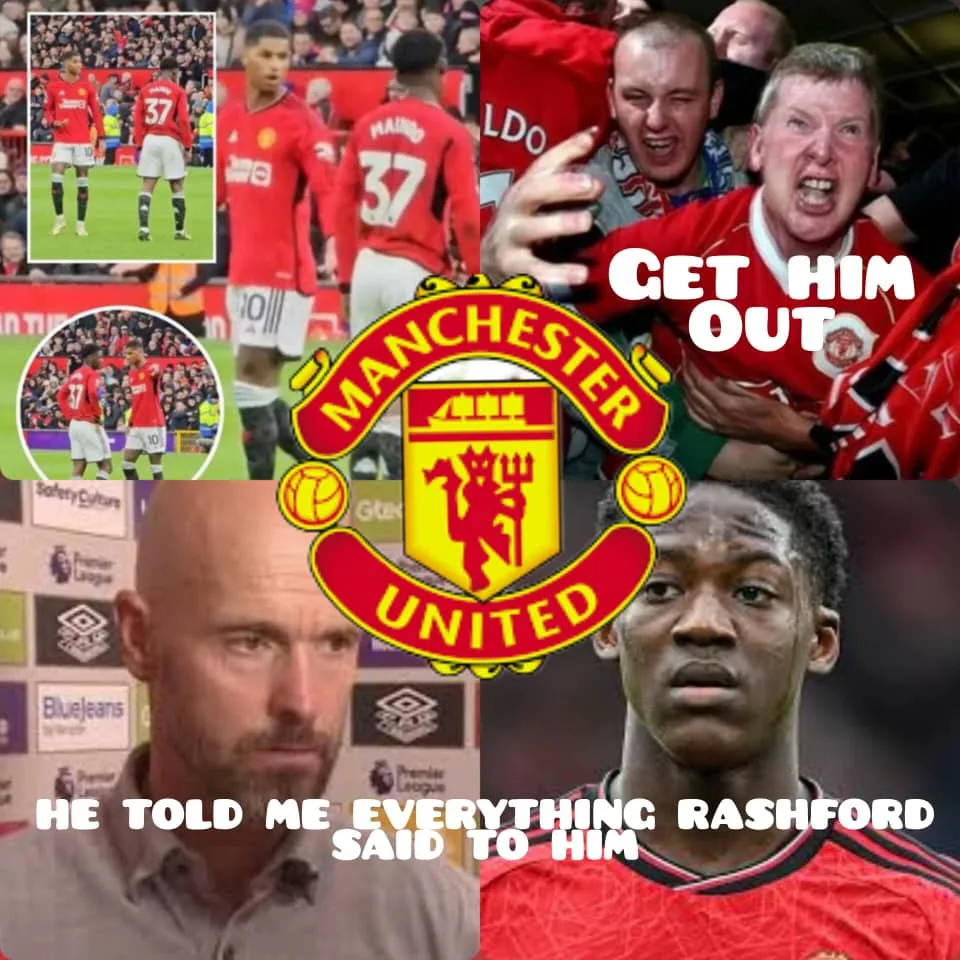
The air in the locker room was tense, heavy with the palpable disappointment that lingered after a tough match. Marcus Rashford, usually known for his resilience and composure on the field, found himself grappling with an unexpected wave of emotions. As he sat on the bench, contemplating the highs and lows of the game, he turned to his friend and confidant, Kobbie Mainoo.
“They would condemn you when you experience a dip in form and swiftly overlook your standout moments,” Rashford remarked to Kobbie Mainoo, his voice reflecting a mixture of frustration and hurt. The words hung in the air, resonating with the shared experiences of many athletes who faced the harsh scrutiny of fans and pundits alike.
Kobbie, a fellow player who had witnessed the highs and lows of Rashford’s career, listened attentively. The camaraderie between the two had grown over the seasons, and Kobbie knew that Rashford’s sentiments ran deep. The sport they loved had a way of magnifying both triumphs and tribulations, and Rashford had become acutely aware of the fickleness of public opinion.
As they sat in the quiet of the locker room, Rashford began to open up about the source of his distress. “Rashford also told me hurtful things to make me look down on my performance. It’s broken my heart so deeply because I never knew my own teammate would ever say something like this to me,” he confessed to Kobbie, his eyes betraying a mixture of disbelief and disappointment.
Rashford’s revelation unveiled a rift within the team, a crack in the camaraderie that was essential for success on the field. The comments from his teammate had cut through the thick layer of solidarity that usually bound them together. In the competitive world of professional football, where unity was key, Rashford grappled with the emotional toll of betrayal from within.
Kobbie Mainoo, sensing the gravity of the situation, offered a sympathetic ear. The complexities of team dynamics were nothing new to him, but the personal nature of the attack on Rashford struck a chord. As they discussed the incident further, Kobbie encouraged Rashford to address the issue with the team, urging transparency and communication to heal the wounds that threatened to disrupt their unity.
The next team meeting became a crucial juncture for Rashford. With courage and vulnerability, he addressed his teammates, acknowledging the challenges they all faced and emphasizing the importance of support within the team. The coach, sensing the need for reconciliation, facilitated an open dialogue where players could express their frustrations and concerns.
In the aftermath of the meeting, a gradual healing process began. Teammates realized the impact of their words on each other’s mental and emotional well-being. Rashford’s courage in confronting the issue fostered a renewed sense of unity and understanding within the team. The journey ahead would undoubtedly be challenging, but the shared commitment to growth and solidarity became the driving force for positive change.
The story of Rashford’s struggle with hurtful comments from a teammate became a powerful narrative of resilience and redemption. It highlighted the importance of addressing internal conflicts within a team and the transformative potential of open communication in the pursuit of success on and off the field.
-

 Manchester United7 months ago
Manchester United7 months agoManchester United fired off more than 22 attempts trying to find the net against Nottingham Forest, with one player squandering around six clear opportunities without scoring. Ruben Amorim was visibly frustrated, publicly calling out a Manchester United star for failing to convert even once, despite facing an unguarded goal on multiple occasions.
-
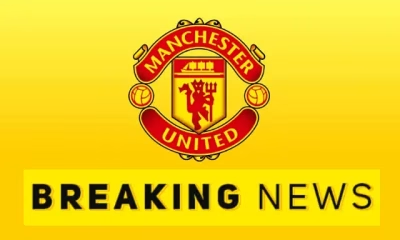
 Manchester United7 months ago
Manchester United7 months agoBREAKING NEWS: “Isak Has Agreed to Join Man United… BUT Only If They Allow That Guy to Join Us!” – Eddie Howe’s Shocking Transfer Demand Stuns Fans.
-
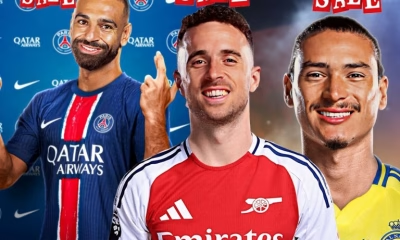
 Liverpool7 months ago
Liverpool7 months agoLFC TRANSFER UPDATES LIVE Liverpool open to selling ( 7) players this summer, including £50 million star who Arne Slot claimed is ‘important’
-
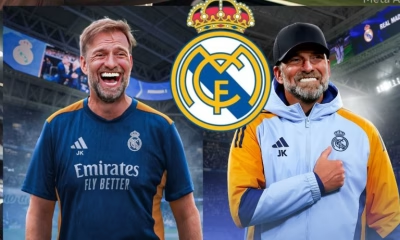
 Liverpool7 months ago
Liverpool7 months agoReal Madrid are discussing a move to appoint former Liverpool boss Jürgen Klopp as their new manager if Carlo Ancelotti steps away and takes over Brazil.
-
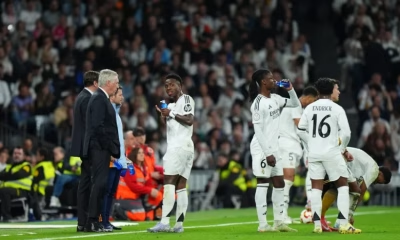
 Real Madrid7 months ago
Real Madrid7 months agoI have warned Carlo Ancelotti about that particular player, he refused to bench him, He keeps causing problems to the teams, He Almost Denied Real Madrid three points against Real Sociedad after taking the lead in the Copa del Rey Semi Finals “: Former Real Madrid Legend Cristiano Ronaldo names ONE player who doesn’t deserve to start for Real Madrid, warned Ancelotti about the unforgivable mistake
-

 Premier League7 months ago
Premier League7 months agoPremier League Shock: Manager Sacked Amid Season Struggles”
-
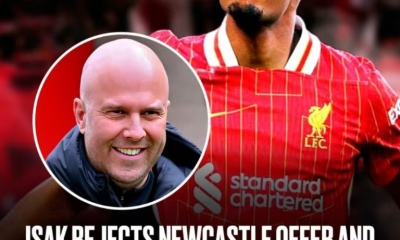
 Liverpool7 months ago
Liverpool7 months agoAlexander Isak to Liverpool swap deal option emerges as transfer pathway clears
-
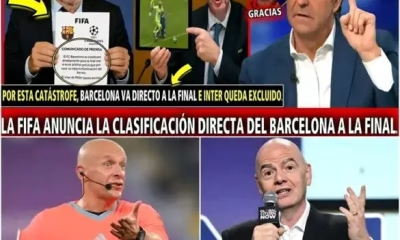
 Barcelona6 months ago
Barcelona6 months agoFIFA officially announces Barcelona will play in the FINAL—and Inter Milan have been KICKED OUT… after referee Szymon Marciniak was ARRESTED in a stunning late-night operation!…
